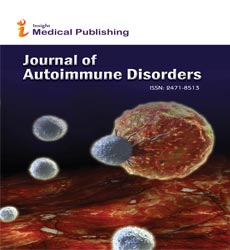Kuwait's Knowledge in Preventing and Treating Neuromuscular Disorders
Mohd Talha*
Department of Pathology, Case Western Reserve University Cleveland, USA
- *Corresponding Author:
- Mohd Talha Department of Pathology, Case Western Reserve University Cleveland, USA, Email: Mohd Talha.bh@amu.ac.in
Received: November 09, 2021; Accepted: November 23, 2021; Published: November 30, 2021
Citation: Mohd Talha (2021 ), Kuwait's Knowledge in Preventing and Treating Neuromuscular Disorders Vol.7 No.6:e001
Neuromuscular disorders (NMDs) are a group of phenotypically and genetically heterogeneous disorders with over 500 genes that affect approximately one in every 1000 people worldwide. These diseases impair muscle function either directly or indirectly through muscle or nerve pathologies. The onset can occur during the neonatal, childhood, or adult years, resulting in significant disability and early or late mortality. These disorders impose a significant burden on patients, their families, and public health systems. Kuwait Genetic Center, the country's only .
Tertiary referral genetic centre, established a neuromuscular registry to aid in the prevention and treatment of NMDs. A new project for premarital screening of common genetic disorders, including NMDs, is also in the works. We now treat a couple of NMDs (Duchenne muscular dystrophy and Duchenne muscular dystrophy.
Neuromuscular diseases actually effect the muscles and their direct nervous system control; problems with central nervous control can cause spasticity or paralysis (from both lower and upper motor neuron disorders), depending on the location and nature of the problem. Cerebrovascular accident, Parkinson's disease, multiple sclerosis, Huntington's disease, and Creutzfeldt–Jakob disease are all examples of central disorders. Spinal muscular atrophies are disorders of the lower engine neuron, whereas amyotrophic horizontal sclerosis is a condition that affects both the upper and lower engine neurons. Immune system disorders, hereditary/genetic disorders, and certain types of collagen disease can all cause neuromuscular disease. Ehlers– Danlos Syndrome is an introduction to ecological synthetics and harm, which includes significant metal harm. The dissatisfaction with the electrical protection encompassing myelin which is found in nerves, is found in certain inadequacy illnesses, for example, the failure of the body's framework for engrossing nutrient B-12.
Myasthenia gravis, a type of muscle weakness caused by antibodies against the acetylcholine receptor, and the related condition Lambert-Eaton myasthenic syndrome are both diseases of the motor end plate (LEMS).
Tetanus and botulism are bacterial infections caused by bacterial toxins that cause increased or decreased muscle tone.
Muscular dystrophies, which include Duchenne's and Becker's, are a large group of diseases, many of which are hereditary or the result of genetic mutations, in which muscle integrity is disrupted, resulting in progressive loss of strength and a shorter life span,when symptoms of a neuromuscular disorder appear, a primary care physician may refer a patient to our specialist, who will perform a thorough examination and may order certain tests to make a diagnosis.
Among the tests that may be ordered are:
• Blood tests
• Electromyography (EMG) – detects electrical activity in muscles
• Cerebrospinal fluid examination
• Magnetic resonance imaging (MRI) – creates detailed images of the brain and spinal cord
• Muscle and nerve biopsies
• Nerve conduction study – measures electrical activity in nerves
Some neuromuscular disorders are caused by a different medical condition, such as cancer or diabetes, In these cases, a dual treatment plan is required for patients to start on the road to recovery, at the Neuromuscular center, our specialists are committed to relieving our patients' pain and improving their quality of life. We employ a variety of treatment options to assist our patients in maintaining their independence and remaining as comfortable as possible, Outpatient treatment is available for many neuromuscular disorders. If symptoms worsen, inpatient care at Miami Valley Hospital may be required, each patient receives a unique treatment plan based on their circumstances and medical history. We provide the following types of treatment, Medications – Some immunosuppressive drugs are effective in treating certain nerve and muscle diseases, and anticonvulsants or antidepressants may help alleviate the pain of other conditions, referrals to specialists – Some patients may require more specialised care.
Open Access Journals
- Aquaculture & Veterinary Science
- Chemistry & Chemical Sciences
- Clinical Sciences
- Engineering
- General Science
- Genetics & Molecular Biology
- Health Care & Nursing
- Immunology & Microbiology
- Materials Science
- Mathematics & Physics
- Medical Sciences
- Neurology & Psychiatry
- Oncology & Cancer Science
- Pharmaceutical Sciences
